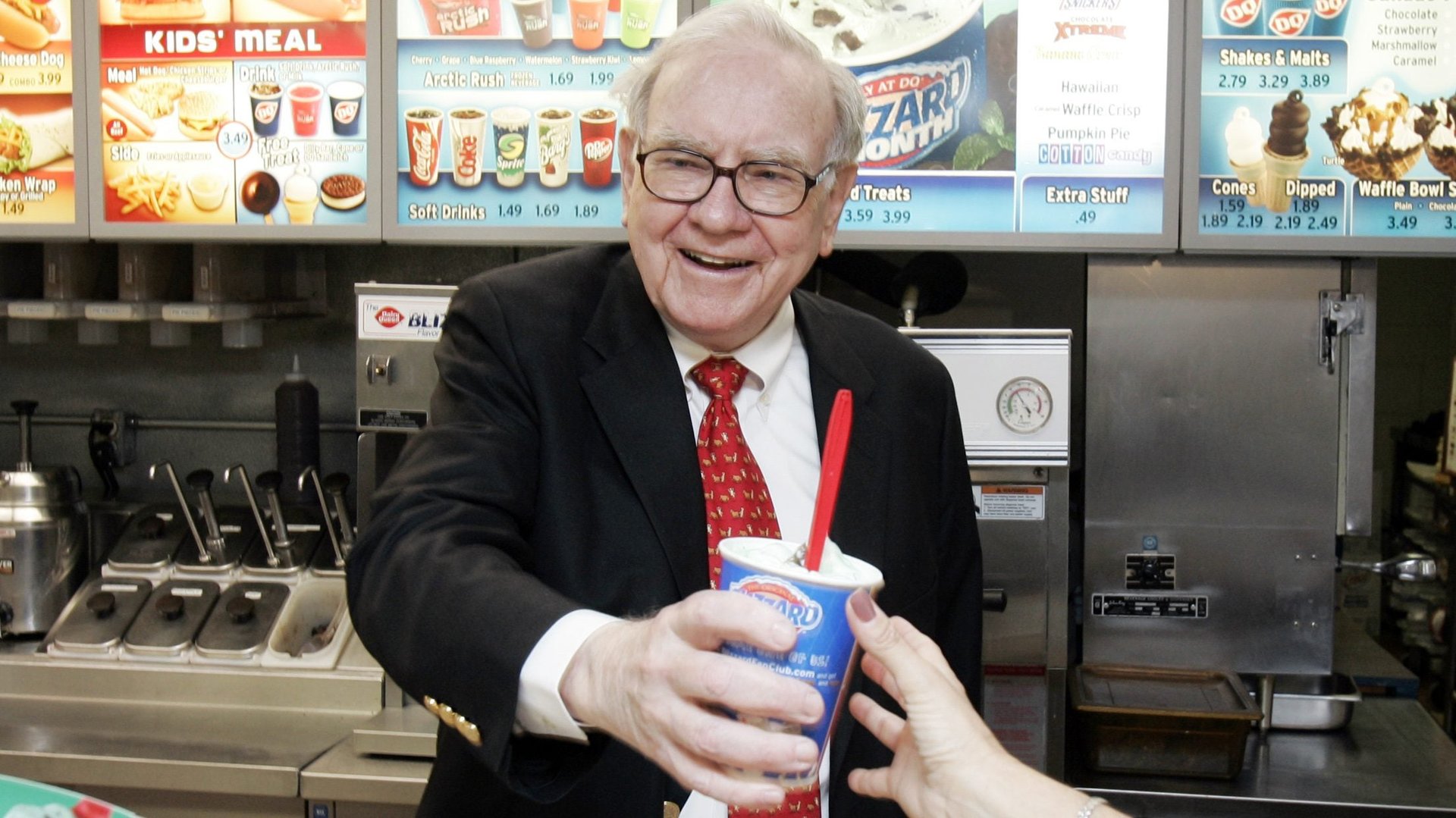Warren Buffett says “don’t go overboard” on delayed gratification
Delayed gratification is the foundation of financial planning. Forgo the immediate pleasures of spending and set aside money in a bank account or investment vehicle, the thinking goes, and you’ll have more money—and, by extension, more happiness—later on.


Delayed gratification is the foundation of financial planning. Forgo the immediate pleasures of spending and set aside money in a bank account or investment vehicle, the thinking goes, and you’ll have more money—and, by extension, more happiness—later on.
At the annual Berkshire Hathaway shareholder meeting today in Omaha, Nebraska, a 13-year-old boy rose from the audience to ask chairman Warren Buffett and vice chairman Charlie Munger how young people can develop the ability to delay gratification.
Munger, typically the more misanthropic of the pair, was blunt. He has eight children, the 95-year-old said, and no longer believes it’s possible to teach delayed gratification. A person either emerges from the womb with it, or they never have it.
Buffett was more circumspect. His career is a testament to the value of the long-term view. He has often described his favorite holding period as “forever,” and prefers to wait for what he perceives as excellent opportunities rather than jump on merely good ones.
Delayed gratification is important, he said. But it’s also important to know when it’s time to spend.
“I don’t necessarily think that for all families in all circumstances, that saving money is necessarily the best thing to do,” he told the boy. “I think there’s a lot to be said for doing things that bring you and your family enjoyment.”
Take Disney World, he offered by way of example. It may not be worth forgoing a two-day trip with a family now in the hopes of saving enough for a weeklong journey in 30 years. As Buffett noted later in the meeting, when asked what he and Munger now value most, time is not an infinite resource. The opportunity to spend time on something meaningful can justify the monetary cost.
Truly enjoyable activities are a worthwhile investment, he said: “I always believe in spending two or three cents out of every dollar I earn [on fun].” (It’s worth noting that Berkshire Hathaway brings in $100 million per day, according to the Financial Times; when you earn as much as Warren Buffett, even 2% buys quite a lot of fun.)
Research has found that the gratification money brings diminishes after the point at which a family’s needs are comfortably met. A 2018 study placed this “satiation point” at around $105,000 in the US. Buffett has noticed the same in his own circles.
“I probably know as many rich people as just about anybody,” Buffett said, and “if you aren’t happy having $50,000 or $100,000 dollars, you’re not going to be happier if you have $50 million… Don’t go overboard on delayed gratification.”